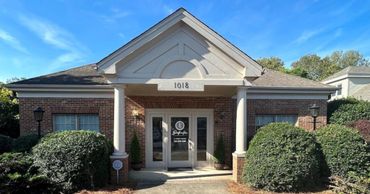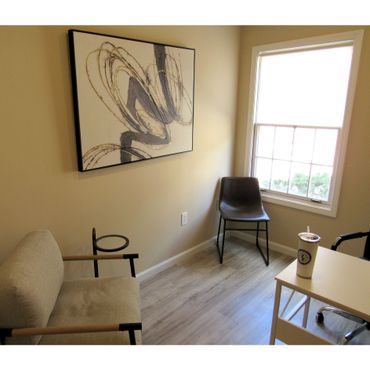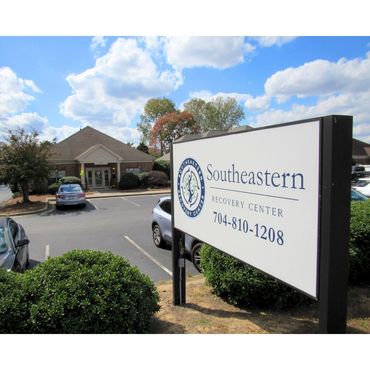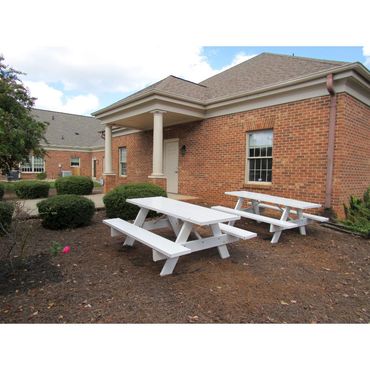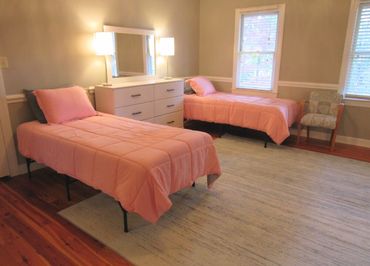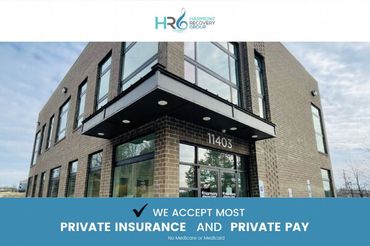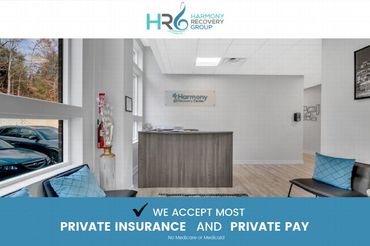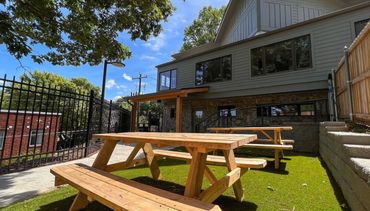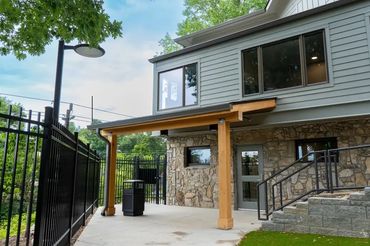
North Carolina Inpatient and Outpatient Rehab Centers Near Me for Drug and Alcohol Addiction
If you are struggling with drug or alcohol misuse or addiction or are in a crisis, getting treatment at an inpatient or outpatient facility in North Carolina can be an important step in your recovery journey. Top drug and alcohol treatment centers near you offer several types of programs like behavioral therapy, support groups and co-occurring disorder treatment. You may be able to locate specialized treatment programs, such as rehab for LGBTQ+ people or treatment for couples.
There are several drug and alcohol rehab centers across North Carolina. If you are looking for alcohol or drug addiction treatment near you, read the reviews below to learn about options for rehab centers in Tennessee and how to pay for rehabilitation treatment.
Addiction treatment centers in North Carolina
All Addiction treatment centers in North Carolina
Are You Covered For Treatment?
- Charlotte Rehabs
- Raleigh Rehabs
- Asheville Rehabs
- Greensboro Rehabs
- Fayetteville Rehabs
- Durham Rehabs
- Wilmington Rehabs
- Winston Salem Rehabs
- Greenville Rehabs
- Lumberton Rehabs
Rehab Insurance Coverage in North Carolina
Rehab Centers in North Carolina
Information About Rehab in North Carolina
Latest Reviews
Latest Reviews of Rehabs in North Carolina
McLeod Addictive Disease Center
Helps stop cravings of other drugs. not organized, only consider this if u are highly addicted to opiates
Drug Addiction in North Carolina
North Carolina has been affected by an epidemic of unintentional poisoning deaths since the late 1990s, and the number of fatalities has risen significantly since then. Most of these deaths resulted from drug overdoses arising from the abuse or misuse of either prescription or illicit drugs.1
Opioid-related deaths involving drugs such as oxycodone, hydrocodone, and methadone have increased significantly in North Carolina; opiates are involved in more deaths than heroin and cocaine combined. 1
Addiction by the Numbers
- Of the unintentional poisoning deaths in North Carolina, more than 92% were caused by prescription, illicit, and over-the-counter drugs and medications.1
- In 2013-2014, 5% of adolescents ages 12-17 reported nonmedical use of painkillers.2
- Around 41% of high school students in grades 9 through 12 in North Carolina reported using marijuana at least once in their life in 2015.2
- From 2006-2013, an average of 64% of adolescents did not receive treatment for depression in the year prior to being surveyed.5
- In 2015, according to a single-day count, 51.1% of people enrolled in substance abuse treatment in North Carolina were in treatment for a drug problem only, 34.8% were in treatment for both drug and alcohol problems, and 14.1% were in treatment for an alcohol problem only.3
How Much Does Rehab Cost?
There is no one-size-fits-all cost of rehab; it can range greatly depending on a number of facets, such as the type of treatment (executive or luxury vs. standard inpatient), the length of stay (90-day vs. 30-day), the location (beach vs. countryside) and insurance policy. If you have insurance, your company will most likely provide at least partial treatment coverage. Make sure to contact your insurance company to learn more about your individual plan. Substance abuse treatment programs in North Carolina accept both federal military insurance, private insurance, Medicare and Medicaid.4
Treatment Options
As of 2015, there were a total of 440 substance abuse treatment facilities in North Carolina.4 The addiction treatment options available in North Carolina include outpatient, inpatient, residential and detox.4
The intensity of substance abuse treatment in North Carolina ranges from community-based outpatient therapy to inpatient detox. Depending on a person’s needs, there are many different addiction treatment options available.4
Local Resources for Recovering Addicts
- Alcoholics Anonymous: Information about Alcoholics Anonymous in North Carolina. Lists meetings, events, and information for family members.
- Narcotics Anonymous: Information for North Carolina residents on the local Narcotics Anonymous chapters.
- Lee County Mental Health and Substance Abuse Services: Community resources
for Lee County residents on behavioral and mental health and substance abuse treatment for adults and children. - North Carolina Department of Health and Human Services: Mental Health and Substance Abuse: Information about substance abuse and mental health services. Also provides information about treatment centers.
- North Carolina Department of Health and Human Services: Access to Recovery: Information about North Carolina’s voucher program for substance abuse services, including eligibility.
There are also free alcohol abuse and drug addiction hotline numbers you can call.
Insurance Providers
Learn more about addiction treatment insurance providers:
Sources
- North Carolina Injury & Violence Prevention Branch. (2016). Prescription & Drug Overdoses.
- U.S. Department of Health & Human Services: Office of Adolescent Health. (2017). North Carolina Adolescent Substance Abuse Facts.
- Substance Abuse and Mental Health Services Administration. (2017). Behavioral Health Barometer: North Carolina, Volume 4.
- Substance Abuse and Mental Health Services Administration (SAMHSA). (2015). National Survey of Substance Abuse Treatment Services (N-SSATS): 2015 State Profile – North Carolina.
- Substance Abuse and Mental Health Services Administration. (2015). Behavioral Health Barometer: North Carolina, 2014.
Does Your Insurance Cover Treatment in North Carolina?
Blue Cross Blue Shield: North Carolina Insurance for Drug and Alcohol Rehab Centers
A substance use disorder (SUD) can bring about negative consequences, affecting all aspects of a person’s life including work, school, family, friends, and overall health.
Many individuals suffering from a substance use disorder are misusing opioids. In the state of North Carolina, opioid addiction is up 55%, according to BlueCross BlueShield of North Carolina and the Centers for Disease Control and Prevention (CDC).1 Nationwide, opioid use disorder (OUD) diagnosis has increased 493%.1
For those searching for help for a SUD such as alcohol use disorder or opioid use disorder, BlueCross BlueShield of North Carolina offers various prevention, intervention, and treatment strategies.1
Drug and alcohol rehab coverage can include non-drug pain management therapies (e.g., physical therapy), medications, and substance abuse professionals and rehab facilities.1
Does BCBS Cover Drug and Alcohol Addiction Treatment in NC?
Blue Cross Blue Shield is known throughout North Carolina as BlueCross BlueShield of North Carolina. Policy holders will have access to various mental health and substance use services under their BlueCross BlueShield of North Carolina health insurance plan.2
Based on your needs and treatment plan, this may include inpatient or outpatient care, detox services, medications, counseling and/or telehealth options for behavioral health.2
Members can call BlueCross BlueShield of North Carolina’s 24-hour phone line to discuss opioid usage and/or get help with addiction.3
